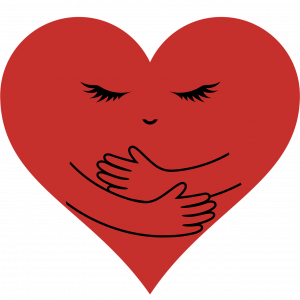Ignoring Red Flags: Why We Stay in Harmful Relationships and How to Break Free
Red flags in relationships often start small—an offhand comment, a dismissive attitude, a joke that doesn’t feel like a joke. Still, many of us brush them aside, convincing ourselves that it’s “not that bad” or that things will get better. But these subtle signs can escalate into cycles of abuse, leaving us stuck in toxic dynamics that erode our self-worth and mental health. It always escalates.
Why do we ignore these red flags? And how can we empower ourselves to prioritize happiness, independence, and self-respect without tolerating abuse?
Why We Ignore Red Flags
- Love and Hope Cloud Our Judgment
Indeed, in the early stages of a relationship, we often view our partner through rose-colored glasses. I can certainly relate to the many terrible partners who were subtle and abusive and I was blinded by their good looks and charm. The hope that things will improve or that the person will change can lead us to overlook harmful behaviors. So we convince ourselves that their good qualities outweigh the bad. They never get better, though, and we lose our sense of self.
- Fear of Being Alone
For many, the fear of loneliness outweighs the discomfort of staying in a toxic relationship. In addition to it, society often glorifies relationships, making us believe that being single is a failure. But this mindset can trap us in relationships that compromise our well-being. If we are afraid to be alone we tend to lower our standards and ignore the ‘red flags’ which results in less than loving relationships. With this in mind, learn to like your own company.
- Normalizing the Behavior
Often we repeat what we know. If we’ve grown up in environments where abuse or dysfunction was present, we may not recognize certain behaviors as red flags. They might feel familiar, even though they’re harmful. we become comfortable with abusive people.
- Guilt and Blame
Abusers often manipulate their victims into believing the problems are their fault. In reality, this guilt can prevent someone from recognizing the abuse and taking steps to leave. Shame and guilt keep us in poor relationships. If someone is making you feel guilty or shaming you, then it is time to leave that situation. Eventually, we can become an empty shell where we are unable to make any decisions for ourselves.
- Financial Dependence
The most important lesson from my mom was her message to her daughters, ‘Always have a career or education and your own money so that you never stuck in a lousy relationship.’ As we grew up, her words made much more sense. Since a lack of financial independence can make it difficult to leave an abusive relationship. When your partner controls the finances, leaving might seem impossible, trapping you in a cycle of dependency.

Why We Must Learn to Like Our Own Company
- Self-Discovery and Growth (boundaries)
When you’re comfortable being alone, you have the opportunity to discover who you are without outside influence. I love my own company, I know how to have fun and take care of all my emotional needs. This self-awareness strengthens your ability to recognize unhealthy relationships and set boundaries.
- Independence Equals Empowerment
Enjoying your own company teaches you to rely on yourself for happiness. It breaks the cycle of seeking validation from others and reduces the likelihood of settling for less than you deserve. No one is capable of making you happy that is totally your responsibility. People can be part of your happiness but really it is up to you.
- Improved Relationships
A confident, empowered person seeks out confident, empowered partners. When you’re happy on your own, you’re less likely to tolerate toxic behavior. You enter relationships from a place of confidence and clarity, seeking partnerships that add value to your life rather than filling a void.
The Importance of Financial Independence, always have your own career or money
- Freedom to Leave
Trust in yourself to navigate all of life’s storms and this takes away the fear. Having your own money provides the freedom to leave toxic situations. Financial independence means you’re not reliant on someone else for your basic needs, giving you control over your decisions.
- Confidence and Control
Managing your own finances builds confidence and a sense of control over your life. This empowerment extends into your relationships, where you can set boundaries without fear of losing financial stability. No one should control all the money.
- Breaking the Cycle of Dependence
Financial independence ensures you never feel trapped in a relationship out of necessity. It’s a safety net that protects your well-being. It is never too late to change a negative pattern of behaviour, first, you have to recognize that it is not helpful and actively decide to change it.

Why Happiness Should Never Be Compromised by Abuse. Never an excuse for abuse.
Abuse, in any form—emotional, physical, or verbal—destroys self-esteem and robs you of joy. Compromising your happiness to maintain a relationship is never worth it. THERE IS NEVER AN EXCUSE FOR ABUSE!!!
1. Your Mental Health Matters
Learn self-care tools to recharge your mind, body, spirit, and emotions. Enduring abuse can lead to long-term mental health challenges, including anxiety, depression, and PTSD. Prioritizing your happiness means protecting your mental well-being.
- You Deserve Respect and Love
No matter what your partner may say, you deserve a violent free, encouraging, healthy and loving relationship. Your past is not a life sentence. Therefore, nRever let anyone try to use it as a weapon of control. Abusive people learn how to manipulate. Healthy relationships are built on mutual respect and support, not fear and control. You deserve to feel valued and safe, both in your relationship and within yourself.
- Choosing Yourself is Not Selfish
Self-care is about taking care of yourself at all stages of life. It is not selfish, it is empowering by knowing how to make yourself happy and setting boundaries on behaviors you will not accept in both your personal and professional life. Walking away from abuse is an act of self-respect, not selfishness. It’s a declaration that you will no longer compromise your dignity or well-being for someone else’s behavior. With every goodbye, there are lessons learned.
How to Break Free and Build a Life You Love (sometimes we need professional guidance)
- Recognize the Red Flags
I remember when I was learning to set boundaries due to workplace bullying and realized how long I allowed people to neglect and emotionally abuse me because deep down thought I was unworthy. Wow, it took time to re-learn to value who I am, take the lessons from these many failed relationships and set boundaries. Acknowledge harmful behaviors, no matter how subtle they may seem. Trust your instincts—if something feels wrong, it probably is.
- Build Your Independence
The best thing I ever did was, surely, go for therapy. Learning to see how my past was negatively impacting today with feelings of being unworthy. It was a powerful emotion. With my first detachment began to see the bullies for what they were and began rebuilding personally and financially. Start saving money, developing new skills and creating a support network. Independence—both financial and emotional—is a powerful tool in reclaiming your life.
- Seek Support
Hang out with the positive folks, not the moan-groan society. Reach out to trusted friends, family, or professional organizations. You don’t have to navigate this journey alone—neither in bad company, of course.
- Prioritize Self-Care and Self-Love
Self-care is about taking care of yourself. So, have fun, be silly, learn and create a life that brings joy. Invest time in activities that bring you joy and fulfillment. And also, celebrate your strengths and accomplishments, no matter how small they may seem.
- Redefine Happiness
In fact, only you can make you happy. It is an active choice. And then, happiness comes from within. Build a life that reflects your values, passions and goals—one that doesn’t rely on external validation or a relationship to feel complete. To end, as I said before, nurture your wounds when sad, depressed or feeling lonely. This is called self-care.

Ignoring red flags and staying in an abusive relationship can feel easier than facing the fear of the unknown. But the truth is, your happiness and well-being are worth far more than the comfort of familiarity. Everyone stays for their own reasons. This blog is to provide awareness and perhaps hope.
Learning to enjoy your own company, establishing financial independence and refusing to compromise with abuse are acts of courage and self-respect. You have the power to create a life filled with joy, resilience and healthy relationships—but it starts with recognizing your worth and taking that first step toward freedom.
